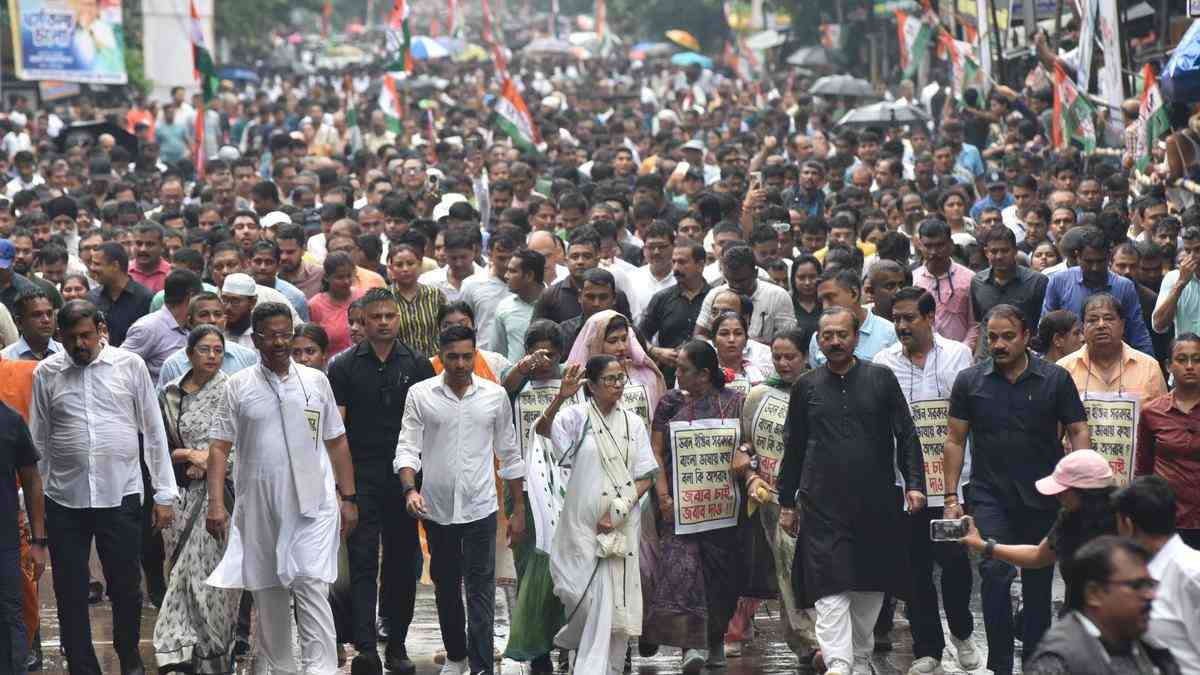Mamata Banerjee Hits Streets Over Bengali ‘Targeting’ in BJP-ruled states
Related Articles
गगनयान मिशन के ड्रोग पैराशूट का क्वालिफिकेशन टेस्ट सफल, सुरक्षा मानकों को पूरा करने में मदद करेगा
भारत के मानव अंतरिक्ष मिशन गगनयान के लिए एक महत्वपूर्ण मील का पत्थर पार कर लिया है। हाल ही में ड्रोग पैराशूट का क्वालिफिकेशन...
सुप्रीम कोर्ट 5 मई 2026 से नागरिकता संशोधन कानून की 243 याचिकाओं पर सुनवाई शुरू करेगा
सुप्रीम कोर्ट ने नागरिकता संशोधन एक्ट (CAA) और इससे जुड़े नियमों को चुनौती देने वाली याचिकाओं की सुनवाई 5 मई 2026 से शुरू करने...
Veteran Umpire Dies After Bee Attack During Match
In a tragic incident at the Sapru Stadium in Unnao, Uttar Pradesh, veteran cricket umpire Manik Gupta lost his life after he was suddenly...


